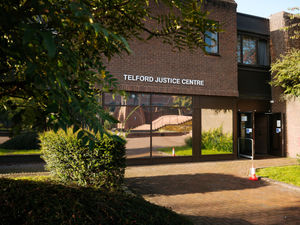Shrewsbury murder trial: Court told of woman's 'exquisitely painful' death
The "rare" injury leading to the "exquisitely painful" death of a Shrewsbury woman could have been caused only by a high degree of force, a leading surgeon told a murder trial.
Julie Mercer's pancreas had been split in two when she was discovered dead at Dial-a-Ride, the office where she worked on Sundorne Trade Park, Shrewsbury.
Her partner, Nigel Woolley, aged 45, of Buttington Road, Monkmoor, Shrewsbury, admits manslaughter but is on trial after denying the murder of Ms Mercer, aged 47, whose body was discovered on the morning of Christmas Eve 2014.
Professor Michael Larvin, of the University of Limerick in Ireland, a specialist in treating disease or injury to the pancreas, told the jury at Worcester Crown Court that if a foot had caused the damage it would need to have been by a "stamp rather than a step". If the injury had been caused by a fist, there would need to have been a "serious amount of force" because the organ was cushioned by soft tissue, Professor Larvin said.
The trial has been told by Ms Mercer's daughter, Samantha Mercer, that her mother and Woolley were heavy drinkers. Professor Larvin said that, while heavy drinking could cause pancreatitis, he had seen no evidence Ms Mercer had that disease.
Asked what would be necessary to happen to cut a pancreas in half, Dr Larvin said: "Generally a large amount of physical force, which is applied quite rapidly and in a focused area where it is near the spine."
He added the force would have been into the area where ribs were not protecting the organ and the pancreas would have ruptured against the spine. The toe or heel going "in at an angle" could cause it.
Such injuries were rare but, in an adult, could be caused in car accidents, the application of a knee in rugby, a fist or by stamping. The professor told the court a split pancreas would be "exquisitely painful" and death would have followed within tens of minutes or an hour.
The trial continues.





